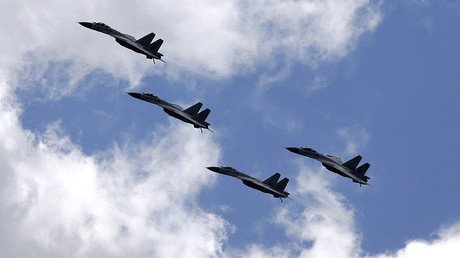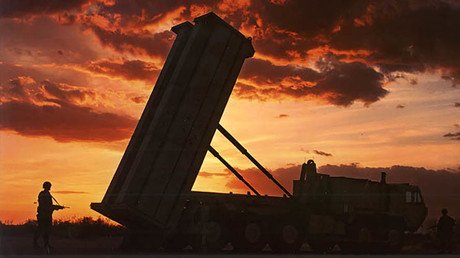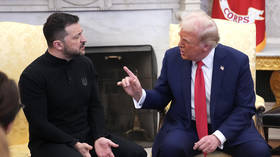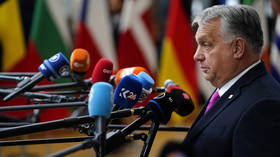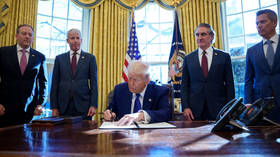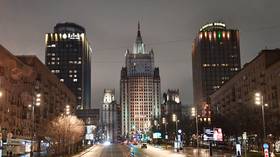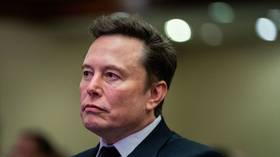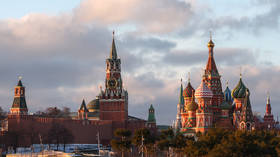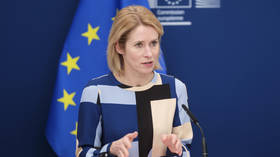Japan’s cabinet approves record $43.6bn military budget amid tensions with China & N. Korea
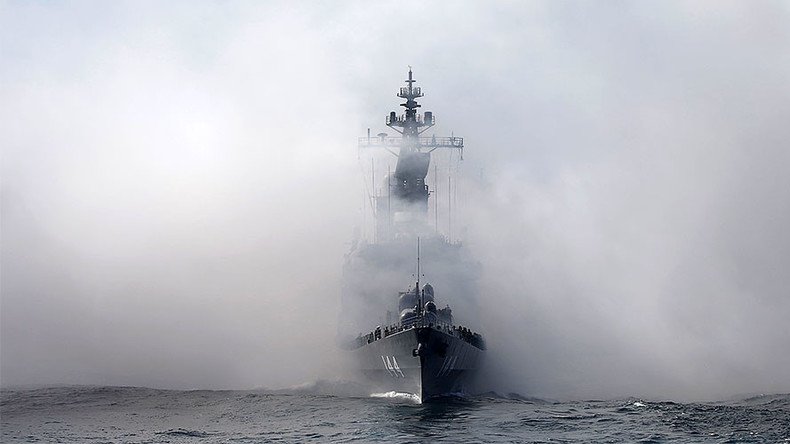
Prime Minister Shinzo Abe’s cabinet has approved a record $43.6 billion Japan military budget, increasing it for the fifth year in a row out of concerns over potential threats from China and North Korea.
Abe’s cabinet signed off on a 1.4 percent increase in military spending, bringing the total to a record 5.13 trillion yen ($43.66 billion) for the fiscal year starting April 1. Experts say the plan is very likely to be approved by lawmakers.
Meanwhile, China continues to claim disputed territories in the South China Sea, and North Korea has continued to carry out missile tests.
Under Abe, Japan has been concentrating on building up its defenses along the southern edge of the East China Sea, moving away from reinforcing the northern part of the 1,400-kilometer-long (870-mile) island chain.
According to Reuters, Japan plans to spend the increase on mobile missile batteries, amphibious vehicles, and other equipment better suited to a mobile force, rather than tanks.
Billions of yen will also be spent on six new submarines, which are well suited to defending the islets.
Moreover, a separate 12 percent increase has been earmarked for the Japanese coast guard due to worries over possible Chinese incursions.
Meanwhile, Beijing upped the ante in November by carrying out air force exercises right next door to Japan in the Western Pacific, although it insists the drills were meant to be a message.
With regard to North Korea, Tokyo has invested in its own intercontinental ballistic missiles to assure that it is prepared to deliver a proportional response if attacked by Pyongyang. Part of the new technology has been developed jointly with the US, such as ship-based missile interception systems that could come in handy, as four missiles recently test-fired by North Korea landed a mere 240 kilometers from Japan.
However, the biggest increase is being made in research and development, which will see its budget soar from 600 million yen to 11 billion this year.
“The security environment surrounding Japan is becoming ever more severe,” Defense Minister Tomomi Inada told a press briefing earlier this week.
However, despite Tokyo’s increasing fear of Beijing and Pyongyang – and the rise in military spending that has come with it – Tokyo still spends less on its military as a percentage of GDP than most other countries, with the figure hovering at just one percent over the last twenty years, according to the Wall Street Journal.
By comparison, the massive Chinese military next door receives two percent of GDP, which works out to five times the money equivalent, according to figures from by the Stockholm International Peace Research Institute cited by the Wall Street Journal.
Not unexpectedly, the United States takes first place in the military spending department, spending three percent of GDP, which added up to a $600 billion bill in 2015.
The US is in agreement that its ally needs to up its game. The Obama administration has been pushing Abe to beef up Japan’s military, while its own influence in the region has taken hits from a nasty spat with the Philippines and rising criticism from the Japanese public, which is unhappy about the US’ long-term presence on the island of Okinawa, where the lion’s share of America’s troops in the region are stationed.
